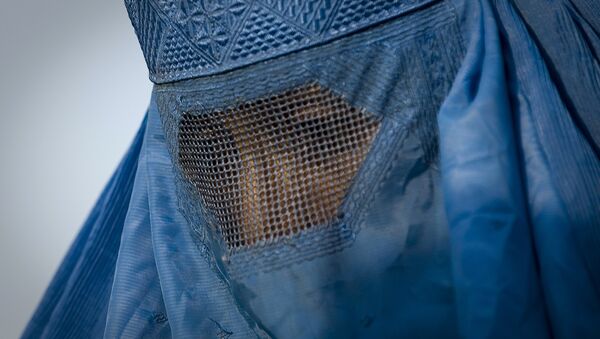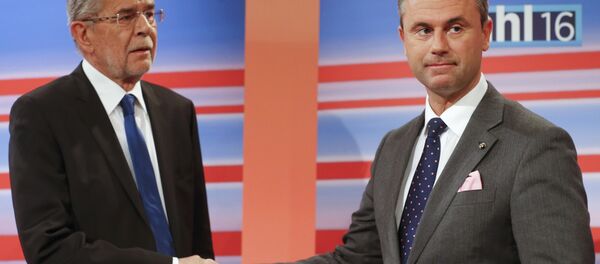The Islamic full face veil "does not belong in our cosmopolitan country," said Thomas de Maiziere at a time when Germany is engulfed in fierce integration debate following the refugee crisis in Europe and Chancellor Angela Merkel's decision to allow 800,000 Syrian migrants settle in Germany.
"We agree that we reject the burqa, we agree that we want to introduce a legal requirement to show one's face in places where it is necessary for our society's coexistence — at the wheel, at public offices, at the registry office, in school and universities, in the civil service, in court," De Maiziere said following a meeting with counterparts from his conservative party.
Two key state elections are due to take place in September and it's expected that the right-wing nationalist Alternative for Germany (AfD) party is set to make strong gains having garnered increasing levels of support after Merkel's "open doors" policy over refugees that led to a movement of migrants from Syria, Iraq and Afghanistan.
But Merkel doesn't falter, refusing announce any cap the number of refugees and asylum seekers Germany will take this year.
More than 1.1 million asylum seekers arrived in Germany in 2015, the majority of them Muslim, stoking xenophobia and racism among anti-refugee communities, fueling the debate over integration and what Muslims should be allowed to wear in public.
Hard right members of the Christian Union bloc want an outright ban of the burqa being worn in public. De Maiziere is suggesting it be outlawed only in certain circumstances; a stance more likely to "win approval" in parliament, he said.
Merkel's CDU wants partial #burqaban in #Germany despite constitutional concerns. Affects public service, schools, courtrooms.
— Michaela Kuefner (@MKuefner) August 19, 2016
Germany recently unveiled new anti-terror measures following two attacks in the country that were claimed by Daesh, also known as Islamic State. The measures include stripping any jihadist of their Germany nationality and fast track deportations of migrants convicted of a crime.
Merkel has herself criticized the conservative Islamic dress.
"From my point of view, a completely covered woman has almost no chance of integrating herself in Germany," Germany's Chancellor told Redaktionsnetzwerk Deutschland, leaving the decision to be handled by De Maiziere.
"This is a question of finding the right political and legal balance and Interior Minister Thomas de Maiziere has my full support in finding a solution," Merkel said.
France became the first European country to ban the burqa in public I 2011 when former French President Nicolas Sarkozy said full face veils were "not welcome" in France. Belgium soon followed suit, also introducing a ban in 2011.
In 2015, the Netherlands approved a partial ban on the full face veil in schools, hospitals and on public transport. Switzerland has since enforced a ban on the full face veil, which means any woman wearing a burqa or niqab could face a fine of 10,000 euros.




